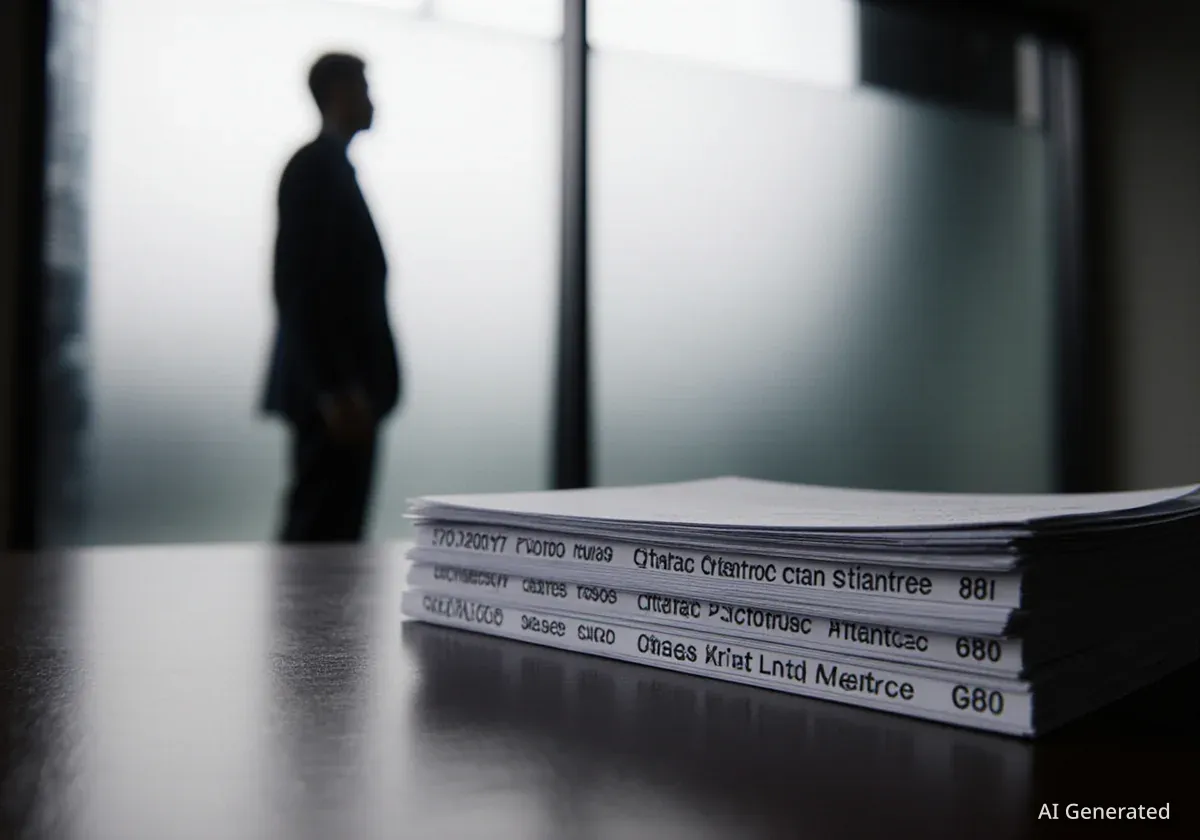A group of Russian bankers, including a co-owner of Sovcombank, invested more than $59 million in luxury properties and commercial venues in South Carolina and Georgia. They later transferred these assets to family members just before U.S. sanctions were imposed following the 2022 invasion of Ukraine, successfully shielding them from seizure.
The transactions highlight how permissive property laws and the use of anonymous corporate structures in some U.S. states create significant challenges for enforcing international sanctions. The case involves Sergey Khotimskiy, a key figure at Sovcombank, who moved millions in assets to his ex-wife days before he was officially sanctioned.
Key Takeaways
- Sanctioned Russian bankers invested over $22 million in luxury real estate in Palmetto Bluff, South Carolina.
- An additional $37 million was invested in commercial properties, including nightclubs and shopping centers, in Atlanta, Georgia.
- Key properties were transferred to an ex-wife, Elena Baskina, just days before U.S. sanctions took effect.
- The use of Limited Liability Companies (LLCs) and opaque state property laws helped obscure the true ownership of the assets.
- Financial crime experts state these cases demonstrate major vulnerabilities in the U.S. system for enforcing sanctions.
South Carolina Luxury Homes Shielded from Seizure
In the exclusive community of Palmetto Bluff, South Carolina, a popular retreat for celebrities, Russian bankers quietly acquired a significant real estate portfolio. Sergey Khotimskiy, along with fellow bankers Dmitry Khotimskiy, Dmitry Gusev, and Mikhail Kuchment, invested over $22 million in luxury homes.
Following Russia's invasion of Ukraine in 2022, the U.S. government expanded its sanctions list to include prominent figures in Russia's financial sector. Anticipating these measures, Sergey Khotimskiy took preemptive action.
Public records show that a $6 million residence in Palmetto Bluff owned by Khotimskiy was transferred to his ex-wife, Elena Baskina. According to reports from El-Balad and The News International, this transfer occurred just days before the U.S. Treasury Department officially added him to the sanctions list. This timing allowed the valuable asset to be legally moved out of his name, placing it beyond the immediate reach of U.S. authorities.
Understanding Sanction Evasion
Sanction evasion refers to actions taken to circumvent or undermine financial and economic restrictions imposed by a government or international body. Common methods include transferring assets to trusted family members or associates, using complex corporate structures like shell companies and LLCs to hide ownership, and moving funds through jurisdictions with weak financial regulations.
Atlanta Becomes a Hub for Obscured Investments
The bankers' U.S. investment strategy was not limited to residential properties. In Georgia, Sergey Khotimskiy directed the acquisition of more than $37 million worth of commercial real estate in the Atlanta metropolitan area. These investments included pubs, nightclubs, and shopping centers.
The ownership of these properties was structured through a complex network of Limited Liability Companies (LLCs). This corporate setup made it difficult to identify the ultimate beneficial owner. According to Realnoe Vremya, individuals involved in selling the properties reported that they never met Khotimskiy and that all transactions were handled by intermediaries. This layer of anonymity is a common tactic used to obscure the source and ownership of funds.
Similar to the South Carolina transaction, Khotimskiy transferred the deeds to his Atlanta properties to Baskina before the sanctions were enacted. This move protected the businesses operating in those locations from the legal and financial complications that would have arisen from being associated with a sanctioned individual.
The Role of LLCs in Obscuring Ownership
Limited Liability Companies (LLCs) are a popular business structure in the U.S. In some states, it is possible to form an LLC without disclosing the names of the actual owners, or "beneficial owners." This anonymity makes LLCs an attractive vehicle for individuals seeking to hide assets from creditors, legal adversaries, or government authorities, including those enforcing sanctions.
Gaps in US Law Complicate Enforcement Efforts
Financial crime experts have pointed to this case as a clear example of the difficulties U.S. authorities face in enforcing sanctions. The ability of sanctioned individuals to exploit legal loopholes at the state level undermines federal policy.
"Opaque corporate structures and lax transparency laws stymie investigators, complicating efforts to identify the true owners of high-value assets," noted a report from Transparency International on the challenges of tracking illicit wealth.
The U.S. government has attempted to address this problem. The Corporate Transparency Act was enacted to require more companies to report their beneficial owners to the Financial Crimes Enforcement Network (FinCEN). However, implementation and enforcement remain significant hurdles.
These enforcement challenges create a situation where assets are frozen on paper but remain effectively controlled by sanctioned individuals through proxies and complex legal arrangements. This allows them to continue benefiting from their U.S.-based investments despite being officially barred from the financial system.
The Next Frontier: Digital Assets and Tokenization
As governments increase scrutiny of traditional assets like real estate, sanctioned individuals and their financial advisors are exploring new methods to protect wealth. Digital financial assets (DFAs) and blockchain technology represent a new and challenging frontier for regulators.
At a recent banking forum in Sochi, the head of Russia's Central Bank, Elvira Nabiullina, spoke about the growing importance of DFAs. According to Realnoe Vremya, she announced plans to expand access to these digital assets for investors and streamline the tax laws surrounding them.
Several key developments in this area include:
- Tokenized Real Estate: Russian banks are already developing platforms that allow for investment in property through digital tokens. This could make ownership more fragmented and harder to trace.
- Blockchain Investments: The decentralized nature of many blockchain assets can make them difficult for any single government to control or seize.
- Integration with Payment Platforms: As digital assets become more integrated with everyday payment systems, the lines between the traditional and digital financial worlds will blur, creating new opportunities for illicit transactions.
Regulators worldwide face the difficult task of encouraging financial innovation while simultaneously building safeguards to prevent these new technologies from being used to evade sanctions, launder money, and finance illicit activities. The strategies employed by the Russian bankers in South Carolina and Georgia serve as a stark reminder of how quickly financial tactics evolve to bypass regulatory controls.





